
Kód: 04520671
Trust and Democratic Transition in Post-Communist Europe
Autor Ivana Markova
These ten essays are concerned with theoretical and empirical analyses of trust and distrust in post-Communist Europe after the collapse of the Soviet bloc in 1989. The contributors come from different disciplines, ranging from hi ... celý popis
- Jazyk:
 Angličtina
Angličtina - Vazba: Pevná
- Počet stran: 232
Nakladatelství: Oxford University Press, 2004
- Více informací o knize

2245 Kč
Dostupnost:
50 % šance Máme informaci, že by titul mohl být dostupný. Na základě vaší objednávky se ho pokusíme do 6 týdnů zajistit.
Máme informaci, že by titul mohl být dostupný. Na základě vaší objednávky se ho pokusíme do 6 týdnů zajistit.Prohledáme celý svět
Mohlo by se vám také líbit
Dárkový poukaz: Radost zaručena
- Darujte poukaz v libovolné hodnotě a my se postaráme o zbytek.
- Poukaz se vztahuje na celou naši nabídku.
- Elektronický poukaz vytisknete z e-mailu a můžete ihned darovat.
- Platnost poukazu je 12 měsíců od data vystavení.
Informovat o naskladnění knihy
Zadejte do formuláře e-mailovou adresu a jakmile knihu naskladníme, zašleme vám o tom zprávu. Pohlídáme vše za vás.
Více informací o knize Trust and Democratic Transition in Post-Communist Europe
Nákupem získáte 225 bodů
 Anotace knihy
Anotace knihy
These ten essays are concerned with theoretical and empirical analyses of trust and distrust in post-Communist Europe after the collapse of the Soviet bloc in 1989. The contributors come from different disciplines, ranging from history, economics and political science to social psychology and sociology. They are all specialists on the countries about which they write, and they show above all that the Soviet 'bloc' was in fact a rich spectrum of different countries with diverse histories, cultures and traditions, and - not surprisingly - with different expectations for the future. Like other social concepts, trust never makes sense in isolation but only within the network of other concepts - in this case, social capital, faith, belief, solidarity, reciprocity and security. 'Trust' is a highly polysemic term. Differences between meanings of trust in countries with democratic traditions and in post-totalitarian countries raise questions about the ways in which history, culture and social psychology shape the nature and development of political phenomena. These questions include: antinomies such as trust versus risk, and trust versus fear; the co-existence of rural and urban systems; legitimacy of different political regimes; and the arbitrariness of decisions and the abuse of common sense in totalitarianism. The transition period in many post-Communist countries has now been completed and in others it is likely to be completed in the near future. Yet the authors show that while political and economic changes can have rapid effects, cultural and psychological changes may linger and influence the quality of political trust and representations of democracy. As post-Communist countries become members of the European Union, many problems discussed in this book will recede into history. Yet the theoretical issues addressed by the authors, such as the interdependence of politics, culture and human psychology, will remain central to current and future concerns in social and human sciences.
 Parametry knihy
Parametry knihy
Zařazení knihy Knihy v angličtině Humanities History Regional & national history
2245 Kč
- Plný název: Trust and Democratic Transition in Post-Communist Europe
- Autor: Ivana Markova
- Jazyk:
 Angličtina
Angličtina - Vazba: Pevná
- Počet stran: 232
- EAN: 9780197263136
- ISBN: 0197263135
- ID: 04520671
- Nakladatelství: Oxford University Press
- Hmotnost: 555 g
- Rozměry: 243 × 164 × 25 mm
- Datum vydání: 01. August 2004
Oblíbené z jiného soudku
-

Hundred Years' War on Palestine
338 Kč -

Ten Myths About Israel
335 Kč -
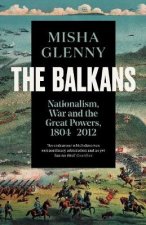
The Balkans, 1804-2012
543 Kč -

Diana: Her True Story - In Her Own Words
303 Kč -

Dictatorland
316 Kč -

Maurice's Strategikon
736 Kč -

Anatomy of the Nuremberg Trials
412 Kč -

Line in the Sand
265 Kč -

Conquest of New Spain
357 Kč -

Slightly Out of Focus
362 Kč -

Pity of War
517 Kč -

History of Venice
464 Kč -

We Were Soldiers Once...And Young
303 Kč -

Palestinian-Israeli Conflict: A Very Short Introduction
312 Kč -

Cuneiform
276 Kč -

Short History of Byzantium
464 Kč -

Great War for Civilisation
545 Kč -

Games without Rules
450 Kč -

Battle of Britain
410 Kč -

Flame Trees Of Thika
303 Kč -

Fortress Third Reich
654 Kč -

British Culture
1850 Kč -
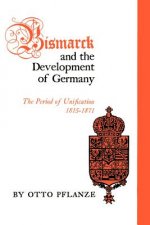
Bismarck and the Development of Germany
2473 Kč -

Drawing on Archaeology
602 Kč -

Brief History of the Hundred Years War
303 Kč -

Life of Anne Boleyn Colouring Book
268 Kč -
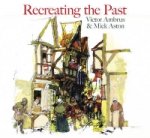
Recreating the Past
488 Kč -

Setting the Desert on Fire
403 Kč -

Oxford History of the Biblical World
470 Kč -

History of Siam
991 Kč -

Fortress France
580 Kč -

P-40 Warhawk Aces of the MTO
684 Kč -

British Destroyers 1939-45
357 Kč -

Ethnic Cleansing of Palestine
357 Kč -

Decline and Fall of the Roman Empire
130 Kč -

Strange Death of Europe
420 Kč -
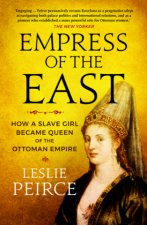
Empress of the East
357 Kč -

Palestine
545 Kč -

The Secret Diaries Of Miss Anne Lister: Vol. 1
304 Kč -

Giza Power Plant
365 Kč -

Rise And Fall Of The Third Reich
543 Kč -

Citizens
543 Kč -

Millennium
368 Kč -

Alexiad
423 Kč -

Voynich Manuscript
990 Kč -
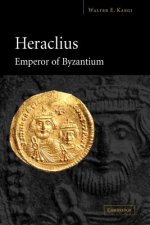
Heraclius, Emperor of Byzantium
774 Kč -

Last Voyage of the Lusitania
487 Kč -

1948
631 Kč -
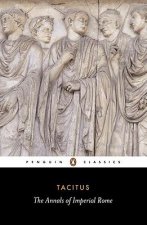
Annals of Imperial Rome
357 Kč
Osobní odběr Praha, Brno a 12903 dalších
Copyright ©2008-24 nejlevnejsi-knihy.cz Všechna práva vyhrazenaSoukromíCookies




 Vrácení do měsíce
Vrácení do měsíce 571 999 099 (8-15.30h)
571 999 099 (8-15.30h)